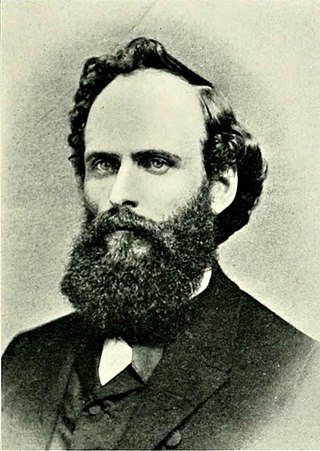Top Qs
Timeline
Chat
Perspective
Edward Payson Evans
American scholar (1831–1917) From Wikipedia, the free encyclopedia
Remove ads
Edward Payson Evans (December 8, 1831 – March 6, 1917) was an American scholar, linguist, educator, and writer. He wrote on topics including philology, ethics, and the human–animal relationship. After graduating from the University of Michigan in 1854, he taught in the United States and later studied in Europe, focusing on German literature and oriental languages.
Evans authored several books and articles on literary and ethical subjects. His 1897 work, Evolutional Ethics and Animal Psychology, examined the ethical implications of evolutionary theory in relation to non-human animals. He is best known for The Criminal Prosecution and Capital Punishment of Animals (1906), a historical survey of animal trials in Europe. His work has been cited in discussions of early animal ethics and the application of evolutionary theory to moral philosophy.
Remove ads
Biography
Summarize
Perspective
Evans was born in Remsen, New York, in 1831.[1] His father was the Reverend Evan Evans,[2] a Welsh Presbyterian clergyman.[3] Evans earned a Bachelor of Arts from the University of Michigan in 1854.[2] He then taught at an academy in Hernando, Mississippi, in 1855, before becoming a professor at Carroll University (then Carroll College) in Waukesha, Wisconsin from 1856 to 1857.[4]
From 1858 to 1862, he traveled abroad, studying at the universities of Göttingen, Berlin and Munich.[5] On his return to the United States, he became professor of modern languages at the University of Michigan.[5] In 1868, he married Elizabeth Edson Gibson,[6] and in 1870, Evans resigned his position at Michigan to travel abroad again, where he gathered materials for a history of German literature,[5] and made a specialty of studying oriental languages.[7]
While living in Munich, he became a fixture at the Royal Library of Munich,[8] and joined the staff of the political journal Allgemeine Zeitung in 1884.[4] Evans' wife died in 1911 and when the First World War broke out in 1914, he returned to the United States, where he lived in Cambridge, Massachusetts and New York City.[8]
Evans died at his home in New York City, on March 6, 1917.[3]
Remove ads
Legacy
Evans' 1906 book The Criminal Prosecution and Capital Punishment of Animals, is considered to be the seminal work on the topic of animal trials.[9] In recent years the book has been the subject of several critiques.[10]
Environmental historian Roderick Nash argues that both Evans and J. Howard Moore, "deserve more recognition than they have received as the first professional philosophers in the United States to look beyond anthropocentrism."[11] Bernard E. Rollin has cited Evans' 1907 book Evolutional Ethics and Animal Psychology as an example of contemporaries of Darwin who used his theory of evolution to advocate for the ethical treatment of animals.[12]
Remove ads
Selected works
Articles
- "Linguistic Paleontology", The Atlantic Monthly, Vol. 53, Iss. 5, May 1884, pp. 613–622
- "Bugs and Beasts before the Law", The Atlantic Monthly, Vol. 54, Iss. 2, Aug. 1884, pp. 235–247
- "Artists and Art Life in Munich", Cosmopolitan, Vol. 9, Iss. 1, May 1890, pp. 3–13
- "Speech as a Barrier Between Man and Beast", The Atlantic Monthly, Vol. 68, Iss. 3, Sept. 1891, pp. 299–312
- "The Nearness of Animals to Men", The Atlantic Monthly, Volume 69, Iss. 2, Feb. 1892, pp. 171–184
- "Ethical Relations Between Man and Beast", Popular Science Monthly, Volume 45, Sept. 1894
Books
- Abriss der deutschen Literaturgeschichte (New York: Leypoldt & Holt, 1869)
- A Progressive German Reader: With notes and a Complete Vocabulary (New York: Holt & Williams, 1869)
- Animal Symbolism in Art and Literature Archived June 3, 2020, at the Wayback Machine (London: W. Heinemann, 1896)
- Animal Symbolism in Ecclesiastical Architecture (New York: H. Holt and Company, 1896)
- Evolutional Ethics and Animal Psychology (New York: D. Appleton & Company, 1897)
- History of German Literature in (5 vols., 1898)
- The Criminal Prosecution and Capital Punishment of Animals (London: W. Heinemann, 1906)
Translations
- Adolf Stahr, The Life and Works of Gotthold Ephraim Lessing (with an introduction; 2 vols., Boston, 1866)
- Athanase Josué Coquerel, First Historical Transformations of Christianity (1867)
References
Further reading
External links
Wikiwand - on
Seamless Wikipedia browsing. On steroids.
Remove ads

